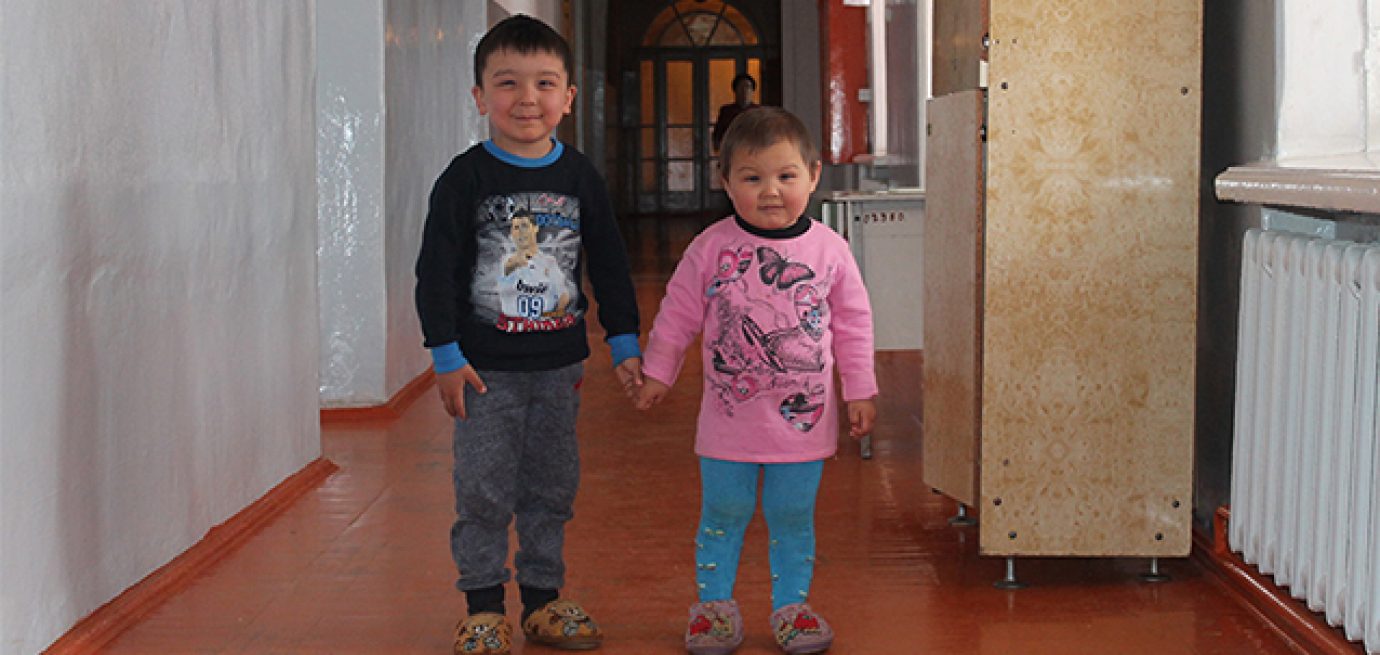By Tristan Bayly and Bakyt Myrzaliev.
The USAID-funded Challenge TB project is supporting the introduction of shorter regimens and new drugs for treatment of drug-resistant (DR-TB) in 18 countries. In Kyrgyzstan, after comprehensive preparatory work and technical assistance from KNCV Tuberculosis Foundation, the enrollment of patients on shorter treatment regimens (STR) began in January 2017.
By May 2017, 62 patients had been enrolled, including seven teenagers and three children. These patients will undergo treatment for nine months, as opposed to the longer-term regimens which take 20–24 months. To date, six patients have successfully completed the intensive phase of the STR, which in many cases requires hospitalization and painful daily injections.
Among those who have completed the intensive phase of treatment, are four-year-old Ilias and his two-year-old sister Sumaya, who were diagnosed with DR-TB in February 2017. They are now continuing their treatment at home and have been reunited with their mother and the rest of their family.
Each patient’s successful completion of the intensive phase of treatment demonstrates the dedication of health workers, who have overseen the diagnosis, treatment and monitoring of these patients.
When a patient can leave hospital and continue their treatment at home it is heartwarming, and this inspires and motivates health workers and administrators across Kyrgyzstan to continue the fight against all forms of TB, and especially DR-TB as it demands so much from both the health system and from patients and their families.
The success of these first steps shows the potential for the introduction and implementation of new and more effective diagnostic and treatment tools in the general healthcare system. That would mean even more people, some of whom have no treatment options, will have the potential to be cured.
For more information visit www.challengetb.org
Photo: Dr. Ainur Soorombaeva

